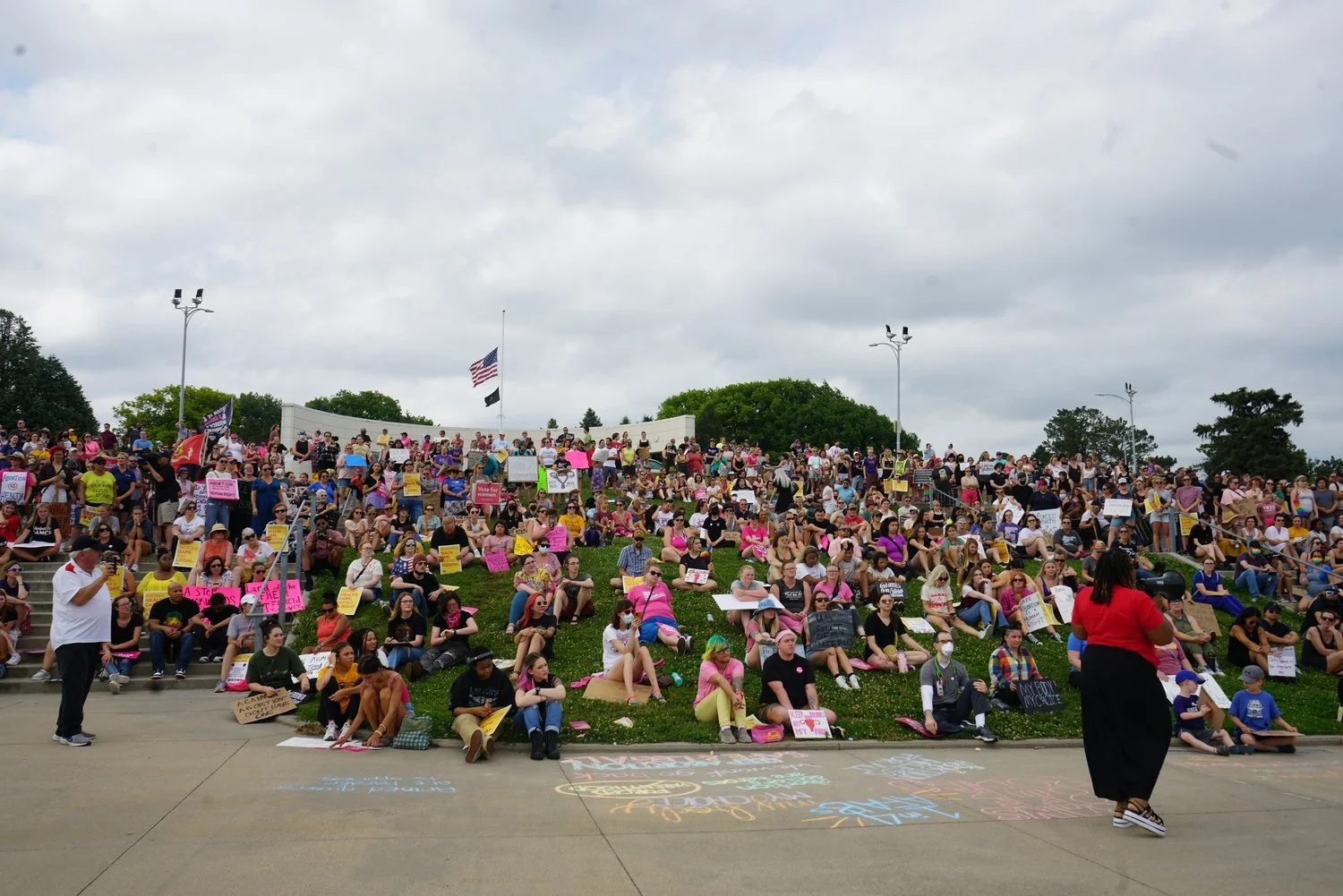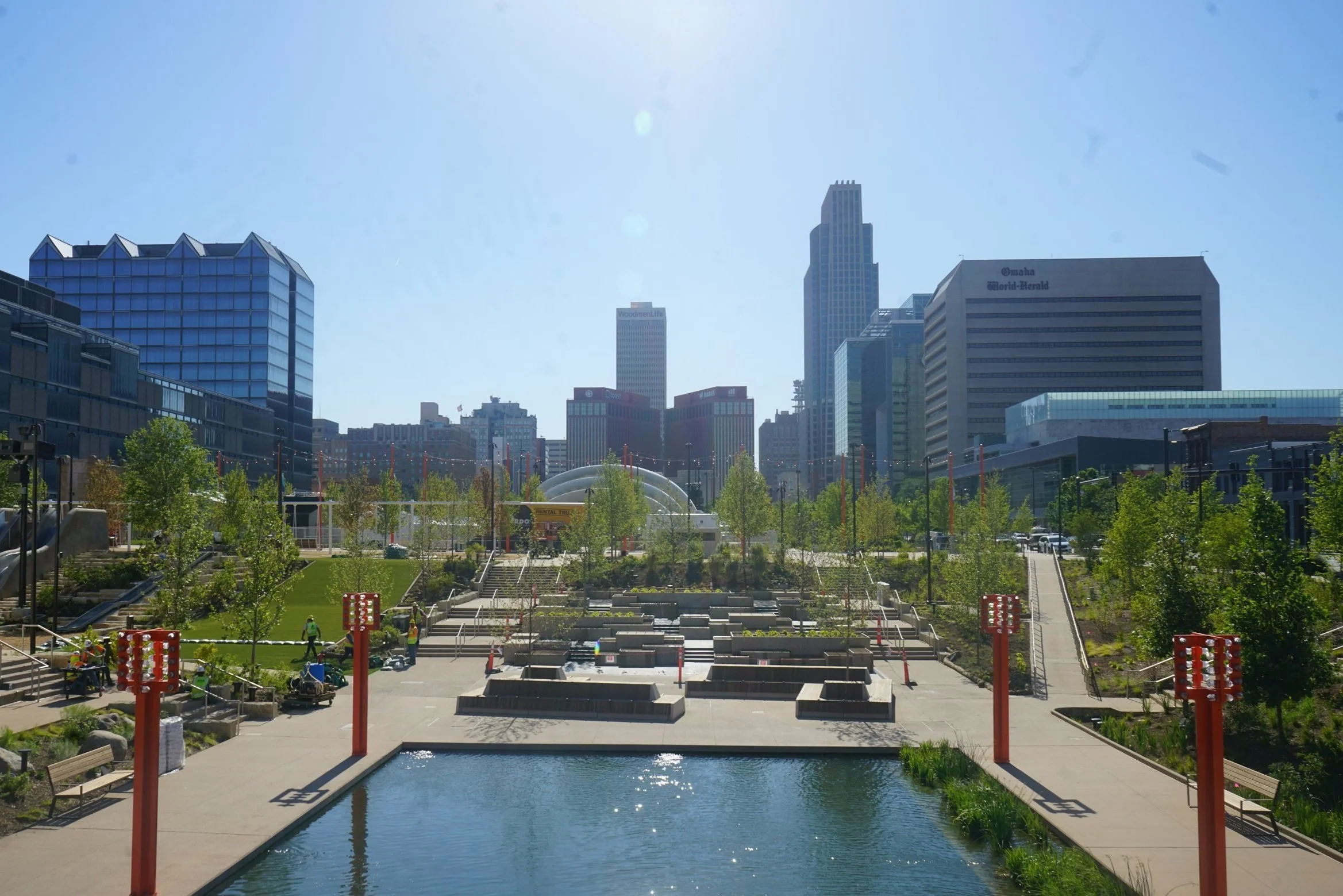Halfway Over, an Update on the Omaha City Charter Convention
By Pete Fey
And just like that, the Omaha City Charter Convention – called by Mayor Jean Stothert in a surprise move a year earlier than legally required – is more than halfway over. Only three more meetings are likely to take place before the convention submits a report to the city council, who will then decide whether any of the convention’s recommended amendments to the city charter should be placed on the November 2022 general election ballot for voter approval.
City departments, the mayor’s office, and the public all had the opportunity to submit proposals to the fifteen-member charter convention consisting of eight members appointed by the mayor and seven by city council.
NOISE will continue to provide coverage of this important civic process as the convention draws to a close. In the meantime, here is a brief run-down of the more notable proposals considered by the convention so far.
Agendas, minutes and video of meetings can be found on the mayor’s website.
BIDDING PROCEDURES FOR CITY PURCHASES AND CONTRACTS
Currently, the City of Omaha is required to put up for formal bid all purchases and contracts of $20,000 or more. These purchases and contracts must also be approved by the city council. A proposal from the city’s finance department seeks to raise this amount from $20,000 to $50,000. Presenting the proposal at the convention’s June 2 meeting, Bernard in den Bosch, the city’s deputy attorney, called raising the spending limit to $50,000 “the most oft requested city charter amendment by city employees and staff'' as, ostensibly, it would grant city officials more leeway in procurement decisions. Convention member Paul Trembell, however, responded to in den Bosch by expressing concern about raising the spending limit, calling it a “protecting taxpayer money issue” and suggesting that the proposal would “make it easier for government to write $49,000 checks with limited public oversight.”
Other city department proposals to the convention aim to make the bidding process for city contracts and procurements more accessible to the public. One proposal from the Public Works department would allow contractors to submit bids to the city over the internet. This would, in the words of in den Bosch, “make it easier for the small, the disadvantaged businesses to be able to submit bids.” Another proposal from Public Works, also supported by the city clerk, would encourage the city to advertise city contracts up for bid on media platforms other than the city’s “official” newspaper, the somewhat-obscure business journal “The Daily Record.”
CITY OPERATIONS DURING A CRISIS
In moves perhaps indicative of the times, multiple city entities sent proposals to the convention regarding how the city operates during times of crisis. The city council, the city clerk, and the mayor’s office each sent separate proposals excusing the city council from meeting the required two times per month if, according to the council’s proposal, “unusually bad weather, civil unrest or other circumstances warrant canceling a meeting.” The city clerk also sent in a proposal that would allow the city council to pass emergency ordinances – measures requiring only one reading by the city council, that can go into effect immediately upon passage – anytime the city or state has declared an emergency.
The mayor’s office sent in multiple proposals regarding how the mayor’s office functions while the mayor is out of town or otherwise unable to perform their duties. According to the current charter, the council president becomes acting mayor anytime the mayor is out of town; the new proposal supported by the mayor’s office would amend this to being whenever “the mayor is out of town for more than ten days or has left the continental United States.” Additionally, the mayor’s office sent the convention a proposal simplifying the process of declaring the mayor mentally or physically unable to perform their duties, as well as two other proposals clarifying lines of succession in the event that the mayor, council president, and council vice president are all incapacitated.
Suggestions from the Public
Roughly 20 people submitted proposals to the convention via email, which were accepted by the convention up until June 10. The proposals range from creating a department of accessibility, which would, in part, work to ensure that city departments follow the Americans with Disabilities Act, to the suggestion that Omaha have “more green space and fewer multistory apartments, used car lots, gas stations or strip malls.”
Sen. Justin Wayne suggested increasing the city council to nine members. Julie Mierau suggested term limits on the mayor.
Dave Schinzel suggested making the Planning Board an elected board, writing “hundreds of millions of dollars [are] handed out by the Planning Board for developments that may or may not have support from the neighborhoods that they are impacting.”
Affordable housing was brought up frequently by the public’s proposals. Six different people asked for the convention to deal with rising housing costs, with one email stating , “We have a clear housing problem in Omaha which, if left unsolved, is going to make it difficult and perhaps even impossible for young people to remain in Omaha due to lack of access to housing.” Manne Cook submitted an “anti-displacement” policy encompassing affordable housing which stated in underlined text, “housing is a basic need and should be seen as a right.”
“We have a clear housing problem in Omaha which, if left unsolved, is going to make it difficult and perhaps even impossible for young people to remain in Omaha due to lack of access to housing.”
Although convention members can suggest amendments to the charter at any time during the convention, two members, Janet Bonet and Kathleen Kauth, submitted proposals using the regular citizen process. Bonet, among other proposals, suggested amending the process through which future city charter convention members are appointed, writing that the current mayoral-appointment system creates the “perception of a stacked deck.” Kathleen Kauth, who was recently appointed to the state legislature by Governor Pete Ricketts to replace the late Rich Pahls, and has been publicly opposed to mask mandates, wrote to the convention that she wanted to add to the city charter “a blanket statement that disallows anyone who is not elected to be able to force constituents to do anything.”
NEXT STEPS
At the latest meeting, on June 13, several citizens addressed the convention during public comment. Scott Blake spoke against council members voting to select their own replacements. Peter Fankhauser of Amplify Arts spoke on behalf of several arts organizations in support of creating and funding a Department of Cultural Affairs.
The convention broke up into subcommittees to evaluate proposals. At the next meeting on Thursday, June 23, the subcommittees will report back to the larger convention on their discussions and provide guidance about which proposals should be included in the convention’s final report to the city council.
The convention will end with meetings on June 30 and July 11, with an additional meeting on July 14, if necessary. All meetings will be held from 5:00 p.m. to 7:00 p.m., in the Omaha Douglas Civic Center at 1819 Farnam St. and are open to the public. Citizens can communicate with the charter convention by email at omahacharterconvention@cityofomaha.org.













